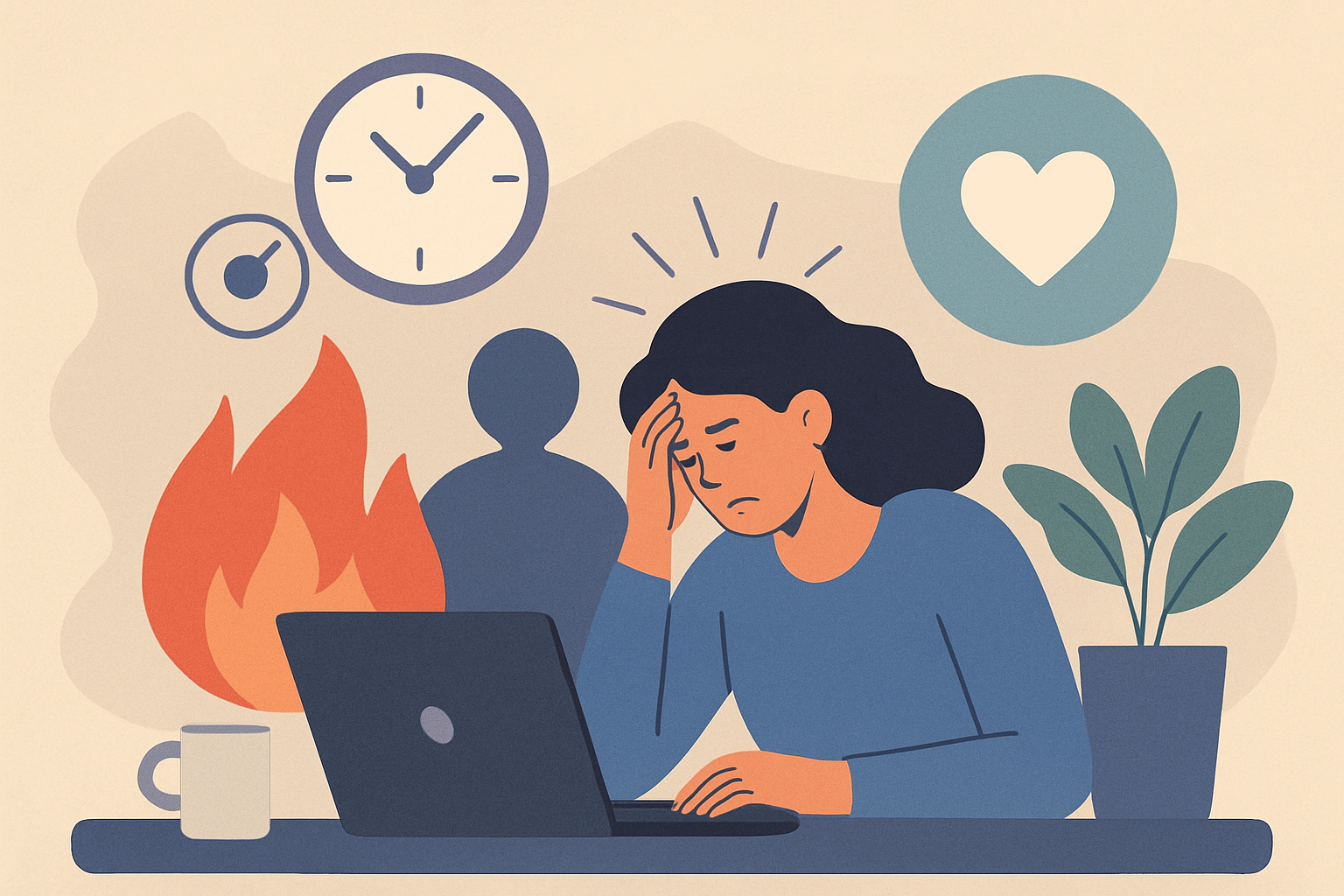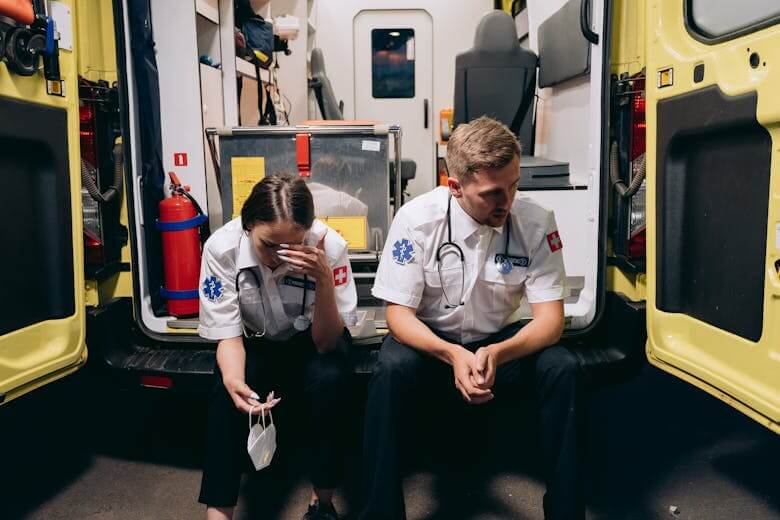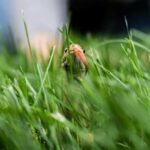Practicing self-care as an international researcher: 4 Researchers share their experiences

I love mangoes. Unsurprising, given the place they occupy in Indian culture. However, as an international student in Syracuse, New York, I got more rain and snow than mangoes.
A week before my graduation ceremony I was standing in the chilly aisle of the local supermarket, feeling homesick. My family could not make it for my graduation. It was summer back home in Mumbai – the height of mango season. That’s when I saw them – dried mangoes. I grabbed a packet. As I passed the juice display, I grabbed some mixed mango juice. I stopped at the freezer and got some mango sorbet ice cream (Pro tip: Talenti is pretty close in taste to Alphonso Mango). As if this wasn’t enough for my mango cravings (or homesickness), I even made a quick stop at an Asian supermarket to pick up some mango rice pudding, just because I was feeling adventurous. I wish I could say I celebrated with that sorbet and juice on graduation day, but I finished the entire lot over that weekend.
While homesickness is a common experience among all students who’re away from their home town or home country, research scholars face their own, unique set of problems when working in a country that is not their own. Along with the typical academic stress associated with grad school, international researchers often deal with other problems such as isolation due to cultural differences, high family expectations, troubles adapting to new climatic conditions, and pressures that come from living in another country.
To know more, I asked a few researchers who had moved away from home a few questions about the problems they faced and how they practiced self-care to deal with them:
What were the biggest causes of stress for you as an international student/researcher?
How did you deal with these stressors?
What did you think about self-care? How did you practice self-care?
Projects Administration Manager, University College London, and researcher in conflict resolution
The main causes of stress for me as an international researcher were bureaucratic, financial, and professional. I studied in Ireland twice: once in 2003-2004 and again from 2007-2010. In between those two times, the regulations changed and I had to learn new visa rules. Also, the system of becoming a legitimate student at Trinity College Dublin (TCD) was a maze – I found that by writing my own steps down, I could help other international students and researchers. At the time, TCD didn’t have any institutional body that served international students, so I became that person. I am happy to say that the university has since filled this staffing gap and taken much more of a leading role in supporting international students.
I self-funded my doctoral programme through US student loans, so unlike American programmes I was not funded by the institution and not beholden to terms of those contracts. I was restricted when it came to the number of hours I could work per week because of my student visa. Money was tight and I had to make it last – during a recession. I was so focused on the financial squeeze at the time, I didn’t think about the costs of borrowing later, and that had a lasting financial impact on me from my time as an international researcher.
Lastly, as an international student, many programmes didn’t serve me since I was a non-EU native. I found that there was little investment in ensuring their international students were confident about applying their very expensive degrees back in their home countries. Many times at career events the speakers essentially frowned when you were not an EU applicant. So, when I inevitably was unable to find lasting work in Ireland, I returned home with little guidance about my next steps. Smaller stressors for me were managing family relationships while afar.
I found that becoming a part of the college community helped me greatly — from the Junior Common Room and the Graduate Students’ Union, I could advocate for other international students and researchers from a position of influence. I also took my work seriously. I gave myself a 3-year deadline to complete my PhD and I succeeded in doing this. This ensured that these stressors did not balloon more than they already had.
I also made sure I treated my degree as a ‘9-5’ job; this meant that I was able to make plans with friends in the evenings and weekends without guilt. I made sure I continued those social relationships and often switched to drinking non-alcoholic beer and opting for meet ups over tea and coffee rather than late nights. During my field research, I took brief time out for myself, including a weekend away and celebrating holidays with the host family that I lived with.
I’m not sure I actively thought about self-care at the time. In retrospect, I practiced self-care by respecting the boundaries of when I was working on my research and when I was not. By funding my research degree myself, I was able to define my schedule. I was fortunate enough to work with a supervisor and a department that respected that, too. I made sure to see my family in the US once or twice a year, and they would make time to visit me too.
It was through my involvement with the student-run bodies that I feel I got the most out of my time at Trinity. I think those experiences allowed me to explore friendships and camaraderie outside of my studies that was vital for my long-term health and wellbeing. Being a part of these student organisations helped me develop new ways of thinking and working with people and projects beyond my own research, and that creativity was a lifeline in itself.
Senior Tech writer at Cockroach Labs
Amruta Ranade had a different perspective on self-care among international graduate students:
I appreciate this advice but also found the advice stressful to follow. Like, “prioritizing self-care” was another expectation of me as a grad student. And if I didn’t do that, I was failing at being a good student 🙁
— Amruta Ranade (@AmrutaRanade) August 5, 2019
The biggest causes of stress for me as an international student/researcher was the cultural difference in the education system. I had no idea of how grading worked, what rubrics were, what the anti-plagiarism policies were, and so on. Even the idea of “self-care” was a novel, Western concept that stressed me out since my classmates knew their brand of self-care and I had no idea where to begin. The unknown unknowns were the biggest stressors for me.
I don’t think I dealt with them well. I struggled with it all through my graduate program. At the end of it, I was just glad to have survived.
After being in the US for four years, I have realized that self-care for me just means giving myself permission to be okay. To rest. To go for a movie or hang out with a friend. I can’t do bubble baths and nature walks — that’s not for me. And that’s okay too.
PhD candidate in Invasion Biology at Stellenbosch University and Claude Bernard Lyon 1 University.
My PhD situation is unique as I am a co-tutelle (Joint Doctorate) student for a joint degree between Stellenbosch University in South Africa and the University of Lyon in France. I spent six months in France and six months in South Africa each year. This caused a lot of stress as I had to find a new place to stay every six months and was never able to settle into a routine. Beyond the logistics, I also struggled with depression, especially in the first six months, as it was my first time outside of Africa; and for such a long period; I really struggled. Even though I was depressed, I got to learn more about myself. I learned that I was very strong, to cope with this alone. I learned how to be alone and enjoy things alone, in a new country with a foreign language.
I also had to adhere to the rules and regulations of each country, and to be frank the French administration system is a solid pain. One rule is that I need to defend my thesis in both countries, so two defenses and two graduations. My defense in South Africa will take place next week with my peers, however, I will miss my graduation in South Africa as I will be in France at that time to defend for a second time. However, this time I will not be surrounded by peers, only the committee assigned to me. My mom will join me for a visit to France during this time. This was a last-minute decision which I am quite grateful for because now I will be able to attend my French graduation with at least my mom present. It is quite a conflicting situation as I would’ve loved to celebrate my graduation with my entire family and partner present, but I am happy that my mom gets to join me. Also, it’s her first time overseas. At the moment I am coping with it by focusing on the positives that I am getting my PhD and that my mom will be there to celebrate with me.
Overall, self-care is extremely important to me and it allowed me to finish this degree. I had to take regular breaks and I found peace in a new relationship. I had to prioritize my needs even though it’s not always the needs of my PhD.
PhD student at Canterbury Christ Church University, UK
The biggest source of stress during my PhD has been maintaining my wellbeing in terms of being present in the U.K., where I study, and being present for my family back in the U.S.A. During my first year, my mom died suddenly on Christmas Day. It derailed my studies, and put everything on pause. My life stood still but I knew that if I stayed home past the short visit, my visa would be at jeopardy. I came back and worked as much as I could, taking my time and being very aware of what my capacity was to work on a research project on death, dying, and bereavement, while I was in my own personal state of deep grief. My mom’s death has had a massive impact on my family, with my grandma taking the brunt of the pain. Currently, my biggest stressor is caring for my grandma when I’m literally an ocean away from my family. I do my best to try and fly back home to check in on her, the rest of my family, and to maintain my friendships in Minnesota. From a research perspective, it is a consistent challenge to separate my grief from my project. Grief is highly personal, so distinguishing my research and my own experience is a daily responsibility.
I am a big proponent of therapy; both as someone who has been in and out of therapy personally and as a mental health researcher. Going to therapy serves as an outlet for me to manage my PTSD, process my thoughts and to gain the non-biased perspective that I need. This may not be a resource that all people can access, however I encourage people to make contact with peer support groups and organizations that offer free counselling sessions or hotline numbers to let go of some of the stressors of life. I also make an effort to be completely honest with where I am on the day. Grief comes in waves, and I have to take care of myself by telling my folks when I’m not doing well. I do realize death and grief can easily scare people, but speaking openly about it does do some justice to de-stigmatize a taboo topic in Western culture. This is despite the fact that it’s a club everyone will join at some point in their lives.
Sharifah Hani Yasmin, Youth Engagement Officer at the British High Commission in Kuala Lumpur, tweeted about how different climatic conditions can affect international students’ mental health:
The weather really affects our moods – in the UK, international students often suffer from seasonal affective disorder aka ‘winter depression’ primarily due to the shorter daylight hours and longer nights.
— Sharifah Hani Yasmin (@sharifahyasmiin) September 20, 2019
Based on these responses, it is clear that self-care is very personal and should be unique to each individual practicing it. There is no one way to take care of yourself, just as there is no single roadmap for a research journey. For example, some researchers may need frequent breaks to unwind while some may need help from a mental health professional. I’ve also realized that the research community itself could function as a great support system, for e.g., academic Twitter, Facebook groups, Quora, etc. But at the larger level, I think we need to acknowledge that institutions need to make active efforts to help and support researchers who have left their homes and families for their passion for research. Self-care is important because mental health matters!
Do you often feel stressed? Wouldn’t it be nice to share your highs and lows with a group of researchers who understand you? Join Researcher Voice, a support group for researchers on Facebook that focuses on their physical, mental, and emotional wellness. Click here to join and read this article to take a sneak peak into what’s going on in the group.






